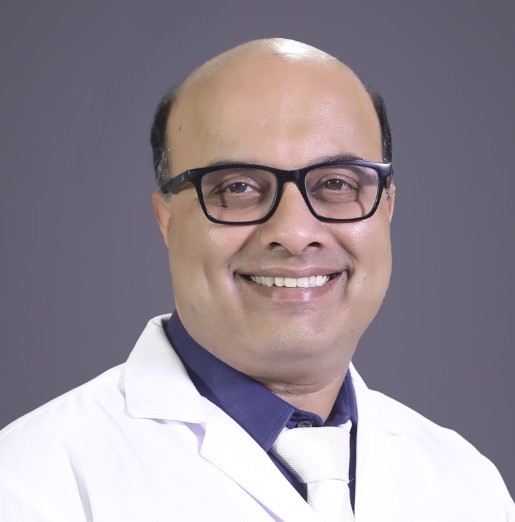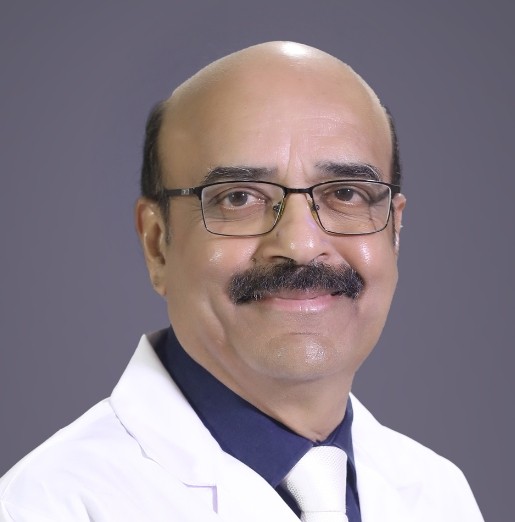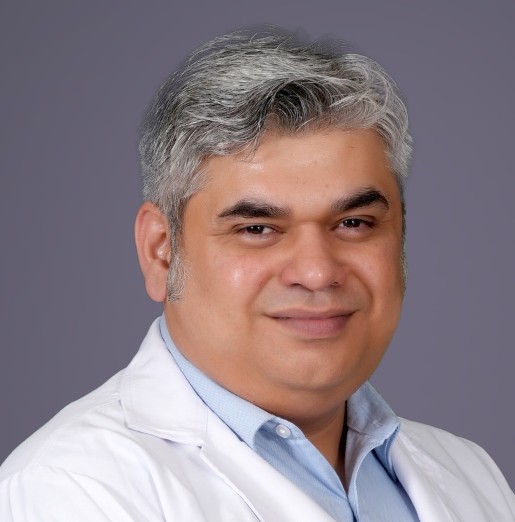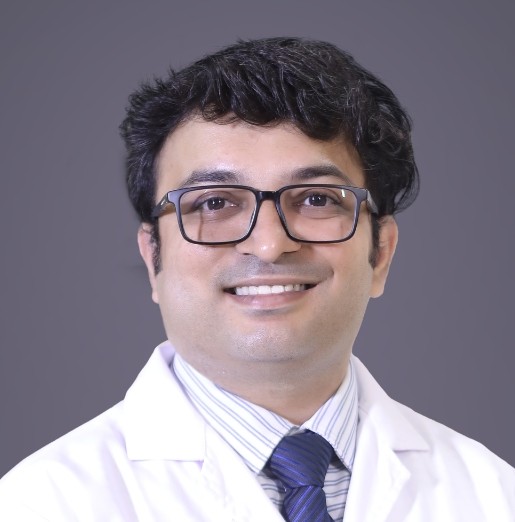KIMS Hospitals in Electronic City delivers top-level care in neurology. We are here for you and have innovative treatments at your service. We always look for new methods and trials crafted by leading experts in the field. Every year, our neurologists help countless adults and children facing rare, severe, or complex conditions.
The Neurology Department at KIMS Hospitals in Electronic City stands as one of the most advanced centers in the region. Our skilled specialists can diagnose and treat many issues related to the brain, spinal cord, nerves and muscles.
Our expertise includes conditions like:
- Epilepsy
- Autoimmune disorders of the nervous system
- Brain and spine aneurysms or vascular malformations
- Disorders affecting movement like Parkinson's disease
- Memory loss, dementia or cognitive problems
- Stroke along with diseases related to blood vessels in the brain
- Tumours in the spine or brain
- Autoimmune conditions affecting brain and spinal cord like multiple sclerosis
- Ongoing headaches and chronic pain conditions
- Disorders linked to muscles and nerves
- Problems with peripheral nerves
- Challenges in speech or communication
- Neurological disorders in children
Each patient gets customised care with top diagnostics and a team-based approach to provide proper treatment and improve recovery chances.
Procedures and Tests
KIMS Hospitals at Electronic City offers many services to treat neurological issues. These involve the ones listed below and more:
1. Neurodiagnostic Tests
- EEG (Electroencephalogram): If your doctor wants to measure the electrical activity of your brain to identify epilepsy or related conditions, this is the procedure of choice.
- Electromyography (EMG): With the help of electrical signals in muscles and nerves your doctor can check how they work.
- Magnetoencephalography (MEG): Detects magnetic fields that develop in your brain, which help a doctor to understand its functions.
- Quantitative sensory testing: Studies nerve reactions to sensations like touch or temperature to evaluate their performance.
- Transcranial Doppler test: Uses ultrasound to observe how blood moves through the brain.
- Thermoregulatory sweat test: Analyses sweating patterns to evaluate autonomic nerve function.
- Autonomic reflex testing: Evaluates how the nervous system controls automatic body functions.
- Neurological gait assessment: Checks walking patterns to find movement-related issues.
- Concussion screenings and tests: Look for signs of physical or mental changes after a head injury.
- Brain MRI (magnetic resonance imaging): Takes images of the brain to spot structural or health problems.
- Diagnostic Subtraction Angiograms: Look at the brain and spine blood vessels by removing other details to make the images clearer.
- Uses ultrasound for diagnosing OPD cases.
2. Brain Function and Therapy Approaches
- Spinal cord injury recovery: Physical and occupational therapies aim to help patients regain abilities after spinal cord injuries.
- Re-learning walking after spinal injuries: Therapists use treadmills to teach patients how to walk again.
- Using electrical currents for muscle recovery: Functional electrical stimulation helps rebuild motor skills by applying small electrical currents.
- Reducing stiff muscles in spinal cord injuries: Our neurologists use a combination of therapies and medicine to help control muscle tightness.
- Finding ways to manage bladder and bowel problems: Plans are created to improve control of bladder and bowel issues caused by neurogenic disorders.
- Checking speech and swallowing difficulties – Speech language pathologists assess communication, swallowing and speech challenges.
3. Therapeutic Neurological Procedures
- Botox injections: Helps in migraines, muscle problems, spasticity and other nerve or muscle-related issues
- Transcranial magnetic stimulation (TMS): It is a non-invasive treatment. Without any damage to your body tissues your doctor can treat your depression and other brain disorders with this procedure.
- Ultrasound-guided pain procedures: These procedures target nerve-related pain by removing the exact pain source with the help of real-time imaging.
- Fluoroscopic-guided pain procedures: Real-time X-ray imaging allows these treatments to target specific areas causing neuro-related pain.
- Neurovascular intervention: These invasive techniques are used to diagnose issues and improve blood flow in the brain and spinal area.
4. Neurological Biopsies and How They Are Understood
- Muscle biopsy analysis: Specialists examine muscle tissues to find and diagnose issues in nerves and muscles.
- Nerve biopsy study: Experts evaluate nerve tissue samples to identify and understand nerve-related disorders.
5. Neuro Care for Prevention and Comfort
- Palliative focus: Care is provided to ease symptoms and bring relief to those living with serious brain or nerve conditions.
- Stroke risk reduction: Specialists evaluate threats and take steps to reduce the likelihood of strokes.











